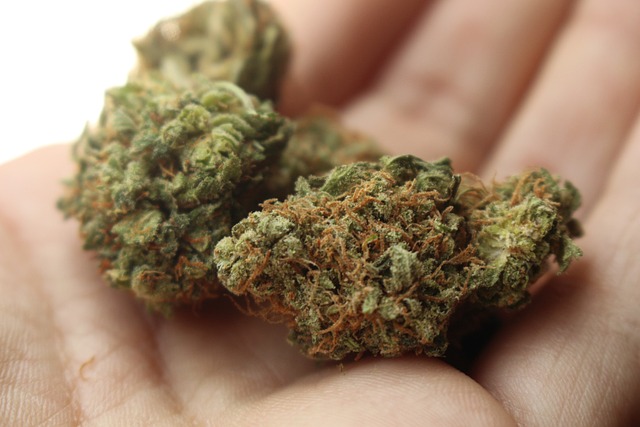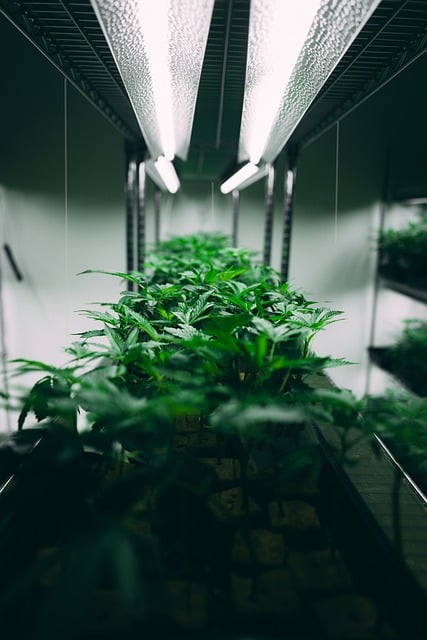The section examines the potential health benefits of THCA flower, a non-psychoactive cannabinoid found in cannabis, particularly its anti-inflammatory properties. Laboratory studies indicate that THCA flower inhibits inflammation by targeting COX-2 and modulating immune system responses, offering relief for conditions like arthritis and skin disorders. Its efficacy is also tied to its ability to interact with the endocannabinoid system by affecting CB1 and CB2 receptors, reducing pro-inflammatory cytokines TNF-α and IL-6. The anti-inflammatory effects of THCA flower make it a promising natural alternative for managing inflammation, though further clinical research is needed to fully understand its therapeutic potential. For those interested in incorporating THCA flower into their wellness routines, it's important to start with a low dose, be aware of mild side effects such as dry mouth or drowsiness, and consult with healthcare professionals, especially when using alongside other treatments or medications. Users should also source THCA flower from reputable providers and adhere to legal regulations regarding cannabinoid use.
Exploring the therapeutic benefits of THCA (Tetrahydrocannabinolic Acid) flower, this article sheds light on its potent anti-inflammatory properties and how it interfaces with the body’s inflammatory responses. We delve into the scientific mechanisms behind these effects, highlighting their potential in health and wellness. While the THCA flower holds promise for managing inflammation, understanding its side effects and appropriate usage is crucial for safe application. Join us as we navigate through the benefits and considerations of incorporating THCA flower into an anti-inflammatory regimen.
- Unraveling the Anti-Inflammatory Potential of THCA Flower: A Closer Look
- The Role of THCA Flower in Inflammation: Mechanisms and Benefits
- Navigating Side Effects and Considerations When Using THCA Flower for Anti-Inflammatory Purposes
Unraveling the Anti-Inflammatory Potential of THCA Flower: A Closer Look
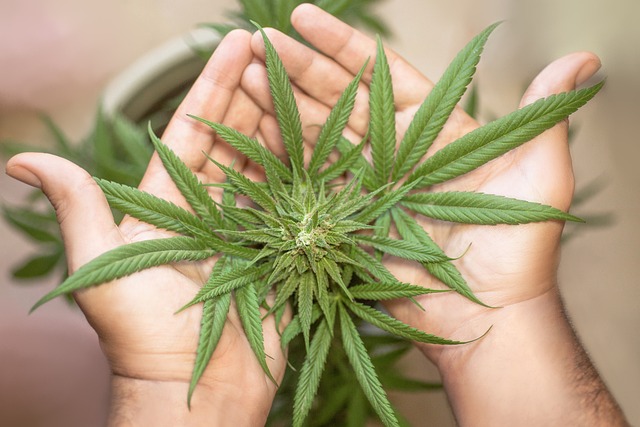
THCA, or tetrahydrocannabinolic acid, is a non-psychoactive compound found in the cannabis plant that has garnered attention for its potential health benefits. Among these, the anti-inflammatory effects of THCA flower are particularly noteworthy. Laboratory studies have demonstrated that THCA possesses significant anti-inflammatory properties. This is attributed to its ability to inhibit certain enzymes and molecular pathways involved in the body’s inflammatory response, potentially offering relief for conditions characterized by excessive inflammation. For instance, THCA has been observed to affect molecules like COX-2, which plays a role in the production of prostaglandins associated with pain and inflammation. This suggests that THCA flower could serve as a natural alternative or adjunct therapy for managing inflammatory conditions without the psychoactive effects typical of its decarboxylated form, THC.
Furthermore, the anti-inflammatory potential of THCA flower extends beyond its direct interaction with inflammatory pathways. Preclinical research indicates that THCA may also modulate the immune response, which is crucial in preventing and resolving inflammation. This dual mechanism of action not only targets the symptoms of inflammation but also addresses the underlying cause, offering a more comprehensive approach to therapy. As such, the exploration into the anti-inflammatory effects of THCA flower continues to reveal its promising role in various therapeutic applications, warranting further investigation through clinical trials to fully understand its implications and optimal usage for inflammatory conditions.
The Role of THCA Flower in Inflammation: Mechanisms and Benefits
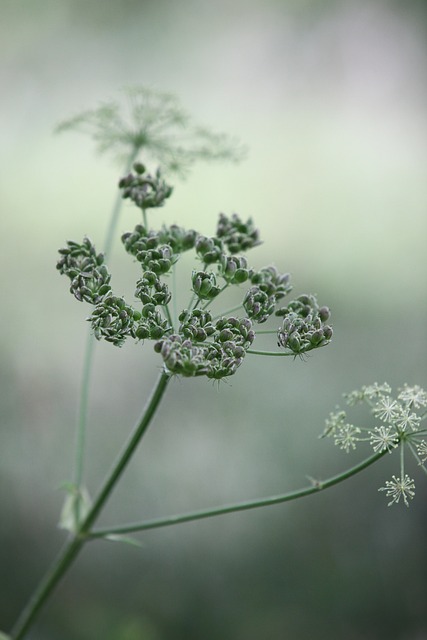
delta-9-tetrahydrocannabinolic acid (THCA) is the non-psychoactive precursor to THC, found abundantly in raw cannabis flowers. Emerging research suggests that THCA possesses potent anti-inflammatory effects, which may be beneficial for a range of inflammatory conditions. The anti-inflammatory properties of THCA are believed to stem from its interaction with the body’s endocannabinoid system, particularly the CB1 and CB2 receptors. By modulating this system, THCA may inhibit the production of pro-inflammatory cytokines, such as tumor necrosis factor-alpha (TNF-α) and interleukin-6 (IL-6), which play a role in inflammation. Additionally, THCA’s anti-inflammatory effects are thought to be mediated through its impact on the activity of certain enzymes and receptors involved in immune responses. This dual mechanism allows for a potentially broad spectrum of therapeutic applications, making THCA flower an object of interest for those seeking natural alternatives to manage inflammation associated with various health conditions. The potential benefits of THCA flower in reducing inflammation are compelling, offering a promising avenue for future research and the development of novel treatments.
Navigating Side Effects and Considerations When Using THCA Flower for Anti-Inflammatory Purposes
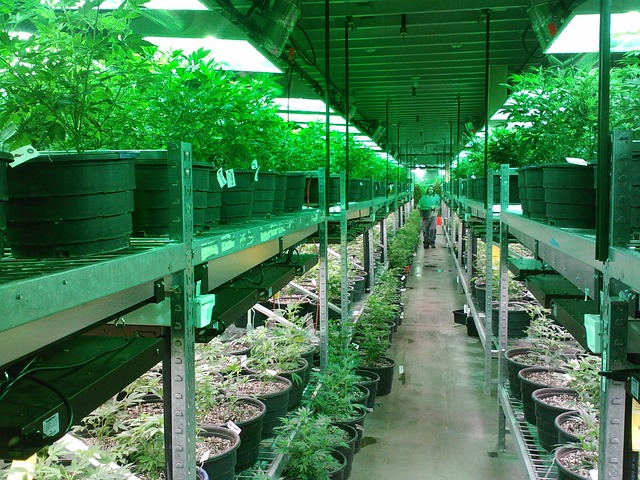
When incorporating THCA flower into one’s wellness routine for its potential anti-inflammatory effects, it is crucial to be aware of its side effects and how they may manifest. THCA, or tetrahydrocannabinolic acid, is a non-psychoactive cannabinoid found in hemp and cannabis plants. It is often sought after for its therapeutic properties, particularly its anti-inflammatory capabilities that could be beneficial for individuals dealing with inflammation-related conditions. Users may experience mild side effects, such as dry mouth or mild sedation, which typically subside as the body acclimates to the compound. It is also advisable to start with a low dose and gradually increase it, as individual sensitivity to THCA can vary. Monitoring one’s response to THCA flower is key; if adverse reactions occur, it may be necessary to adjust dosage or consult with a healthcare professional.
Navigating the side effects of THCA flower requires careful consideration of various factors, including personal health history and product quality. Users should source their THCA flower from reputable suppliers to ensure purity and potency. Additionally, it is important to adhere to any legal restrictions regarding cannabinoid use in one’s jurisdiction. For those utilizing THCA flower for its anti-inflammatory effects, maintaining appropriate dosage and being attentive to how the body reacts can help mitigate potential side effects. Regular consultation with a healthcare provider is recommended, especially if combining THCA with other treatments or medications. By approaching THCA flower use with an informed perspective and adhering to best practices, individuals can harness its therapeutic potential while minimizing any negative experiences.
In conclusion, the therapeutic potential of THCA flower as an anti-inflammatory agent has been illuminated through recent research. Its mechanisms and benefits in addressing inflammation offer promising avenues for natural health interventions. However, it is imperative to approach its use with caution, considering the distinct side effects that may arise. Users should be informed of these potential impacts, which can range from mild discomfort to more significant reactions, ensuring safe and responsible consumption. By understanding both the benefits and limitations of THCA flower, individuals can make informed decisions about incorporating it into their health regimens. As research continues to evolve, the application of THCA flower in managing inflammation may become a more integrated aspect of holistic care, provided its side effects are carefully managed.

